November 17, 2025
Updated: November 17, 2025
The dark web is tiny and widely misunderstood here are the real facts behind the myths.
Mohammed Khalil

The dark web often conjures images of a lawless underworld, but that reputation is mostly myth and sensationalism. In reality, the dark web is simply a small, hidden slice of the Internet. It can be used for both good whistleblowing, privacy and bad illegal trade, just like the regular web. By debunking common myths, we can better understand what the dark web really is and why it matters today.
Why does this matter now? In 2025, with growing concerns about privacy, data breaches, and global surveillance, the dark web is more relevant than ever. Dispelling misconceptions helps security pros, journalists, and everyday users make smart decisions. The right facts can protect your data and keep you out of legal trouble. Let’s dive into the biggest dark web myths and set the record straight.
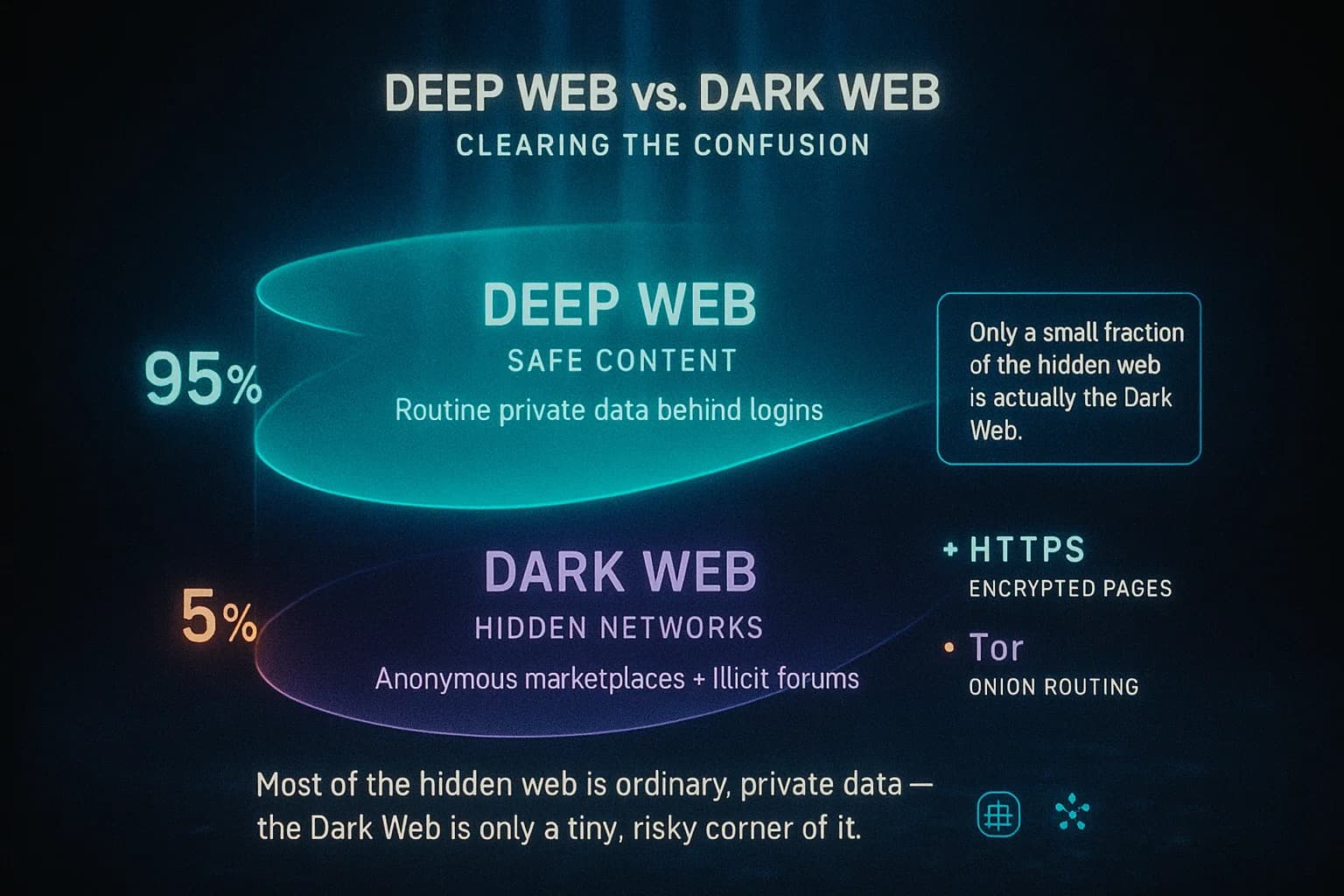
Myth: The deep web and dark web are the same thing.
Reality: Not even close. The deep web is just all content not indexed by search engines, think private email, bank accounts, medical records, etc. This is huge, around 90- 95% of all web content and mostly harmless. The dark web is a tiny subset of the deep web <1%, reached only with special tools like the Tor browser and unique .onion URLs.
All dark web sites are part of the deep web, but most deep web content like your email or Netflix queue is not on the dark web. The dark web lives on encrypted networks; it’s intentionally hidden for anonymity. By contrast, deep web content is simply private or behind passwords. For more details, see our deep dive on Deep Web vs Dark Web.
The dark web is much smaller than most people think. It accounts for far less than 1% of the Internet. Don’t let iceberg diagrams fool you, the dark web is a tiny iceberg tip, not the whole ocean.
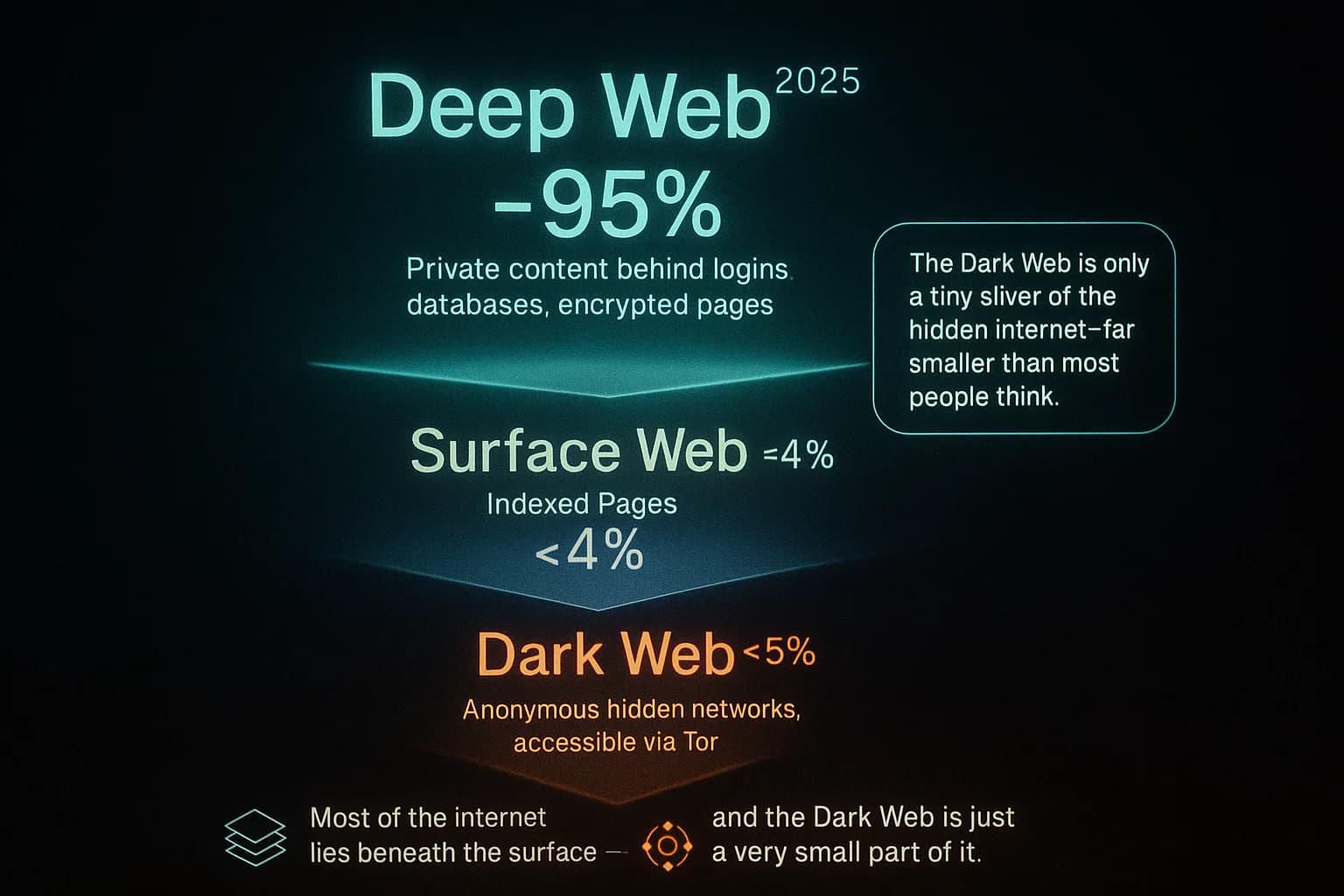
Myth: The dark web is huge, it's most of the Internet!
Reality: Nope. This claim comes from wildly exaggerated iceberg images. In truth, the dark web is minuscule. A 2019 study by Recorded Future reported by CyberScoop found about 55,828 .onion sites in total, with only about 8,400 active at any time. That’s 0.005% of public web pages.
Put another way: for every single dark web page, there are tens of thousands of surface web pages. Even a figure of 96% dark web is flat out wrong. Most of the Internet lives on the surface and deep web, not the dark web. In short, the dark web is tiny, not vast.
You’re more likely to encounter malware on a dodgy download site or phishing email than stumble upon a random dark web market. The dark web isn’t a secret majority; it’s a little corner of the net.
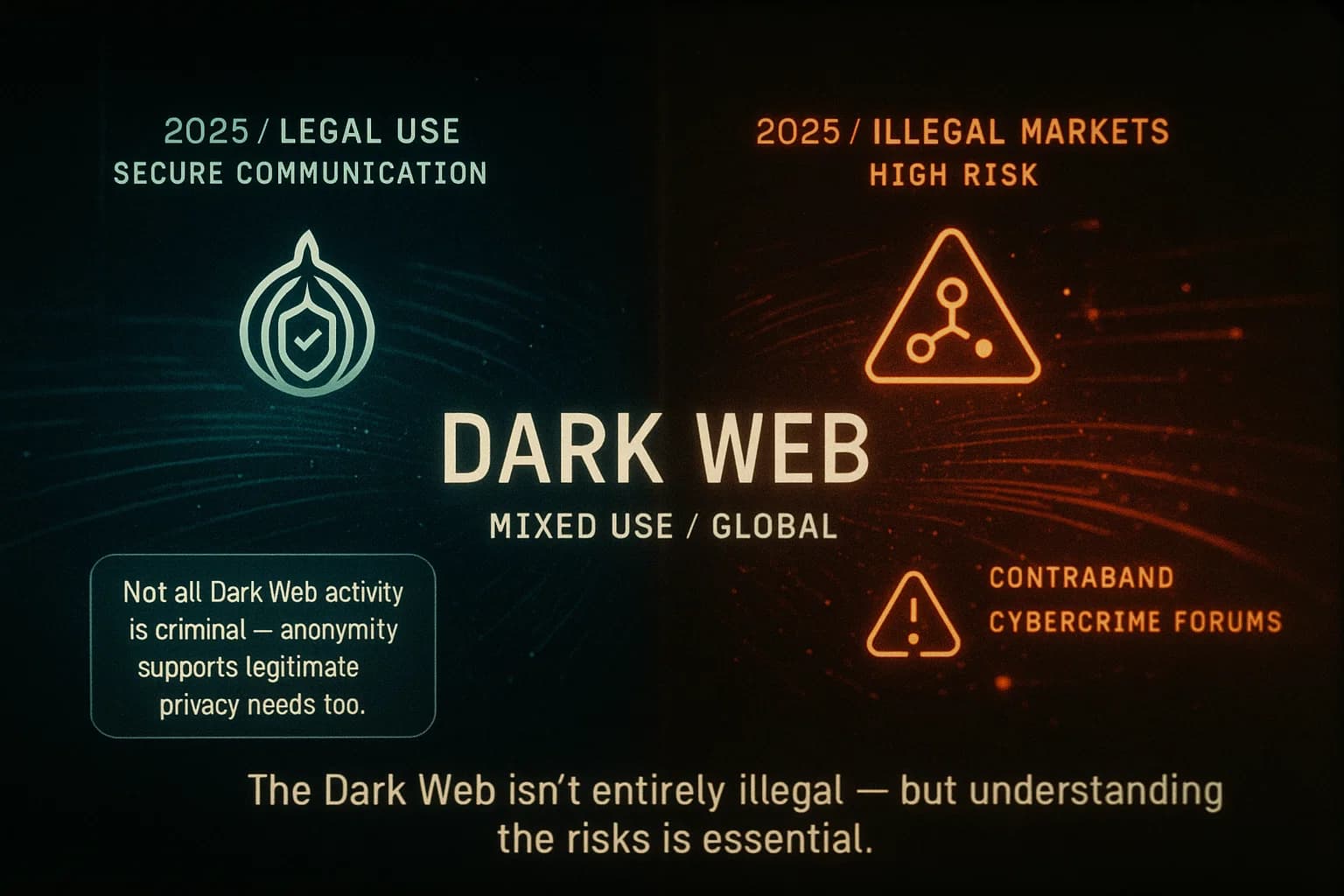
Myth: The dark web is only for criminals. If you’re on Tor, you must be doing something illegal.
Reality: This is misleading. The dark web hosts illicit marketplaces, sure, but it also hosts legal and useful services. It’s a technology, not a crime scene by definition. Many people use it for privacy: journalists, activists, and citizens in censored countries browse safely using Tor. Major news organizations BBC, New York Times, ProPublica even run official .onion sites for secure access. Whistleblowers use dark web portals like SecureDrop to leak information safely.
Indeed, research shows most cybercrime happens on the regular Internet social media, messenger apps, email not buried on Tor. In 2019, Terbium Labs’ Emily Wilson noted that contrary to popular belief, the dark web is not an inherently criminal place. Criminal forums and black markets do exist, but they’re a tiny slice of the dark web. Plenty of sites there are neutral or even helpful forums, blogs, privacy tools.
Dismissing the entire dark web as evil drives misguided policies and scares normal users. The dark web can be a safe space for free speech and privacy. For example, Syrian activists used Tor to organize during protests. Yes, illegal stuff happens there but it happens even more on normal websites and apps.
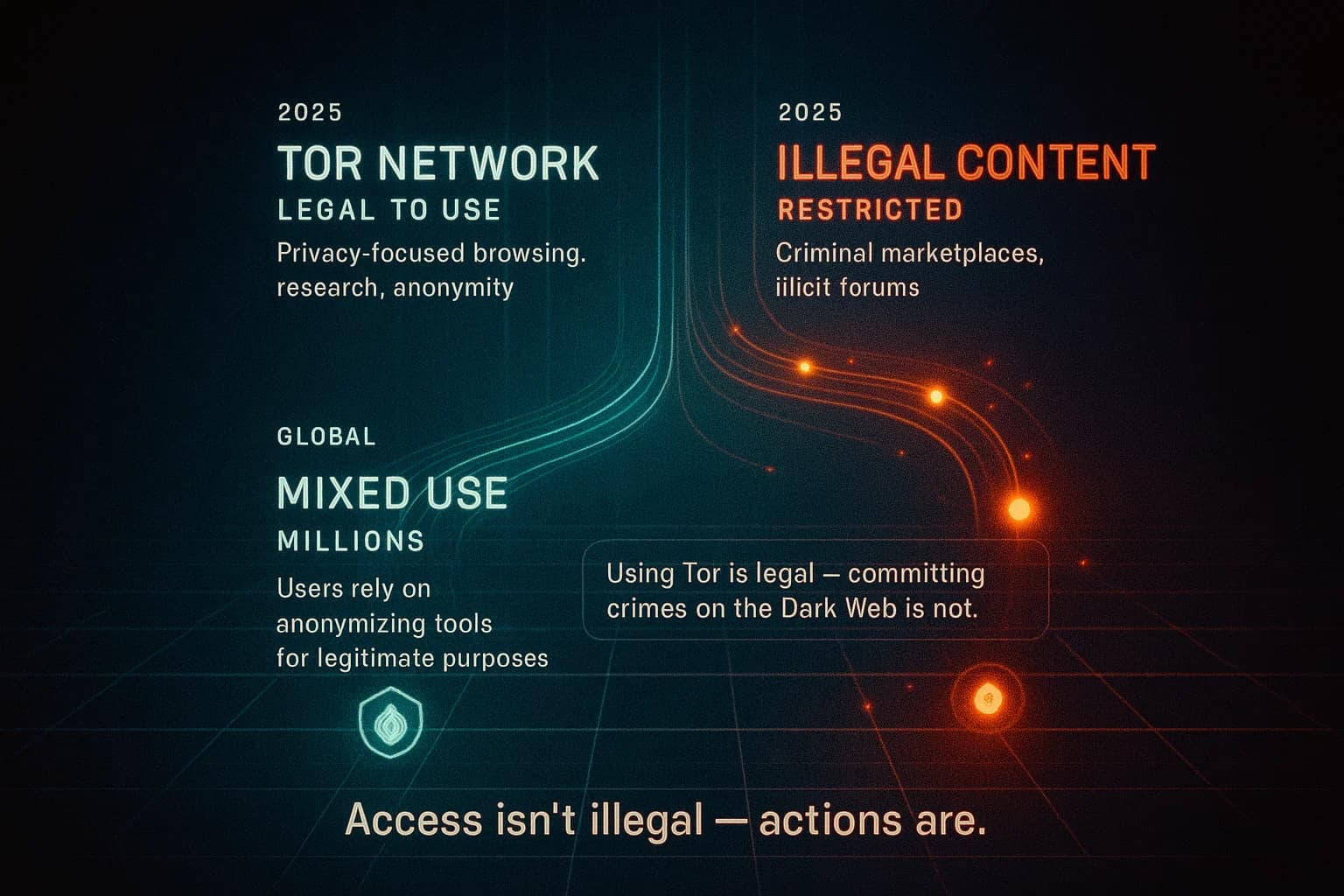
Myth: You’ll get in trouble for just browsing the dark web.
Reality: Simply using the dark web is legal in most countries. Tools like the Tor browser are legitimate privacy software. The act of accessing .onion sites, reading posts, researching, etc. is usually not a crime. What’s illegal is what you do. For instance, downloading stolen data or buying drugs on a dark web market is illegal, but surfing .onion sites is not.
Official sources confirm this. The ISO notes that accessing it isn’t illegal, it's what you do there that matters. Likewise, cybersecurity guides state clearly: Accessing and viewing content on the dark web is legal in the United States, the EU, and most countries. Governments use Tor, and privacy enthusiasts do too; none of them are breaking the law just by browsing.
Legal jurisdictions still apply. If you stumble upon contraband like illegal videos or weapon listings and save or distribute them, you could be prosecuted. But the legal risk is in illegal transactions, not the act of visiting hidden sites.
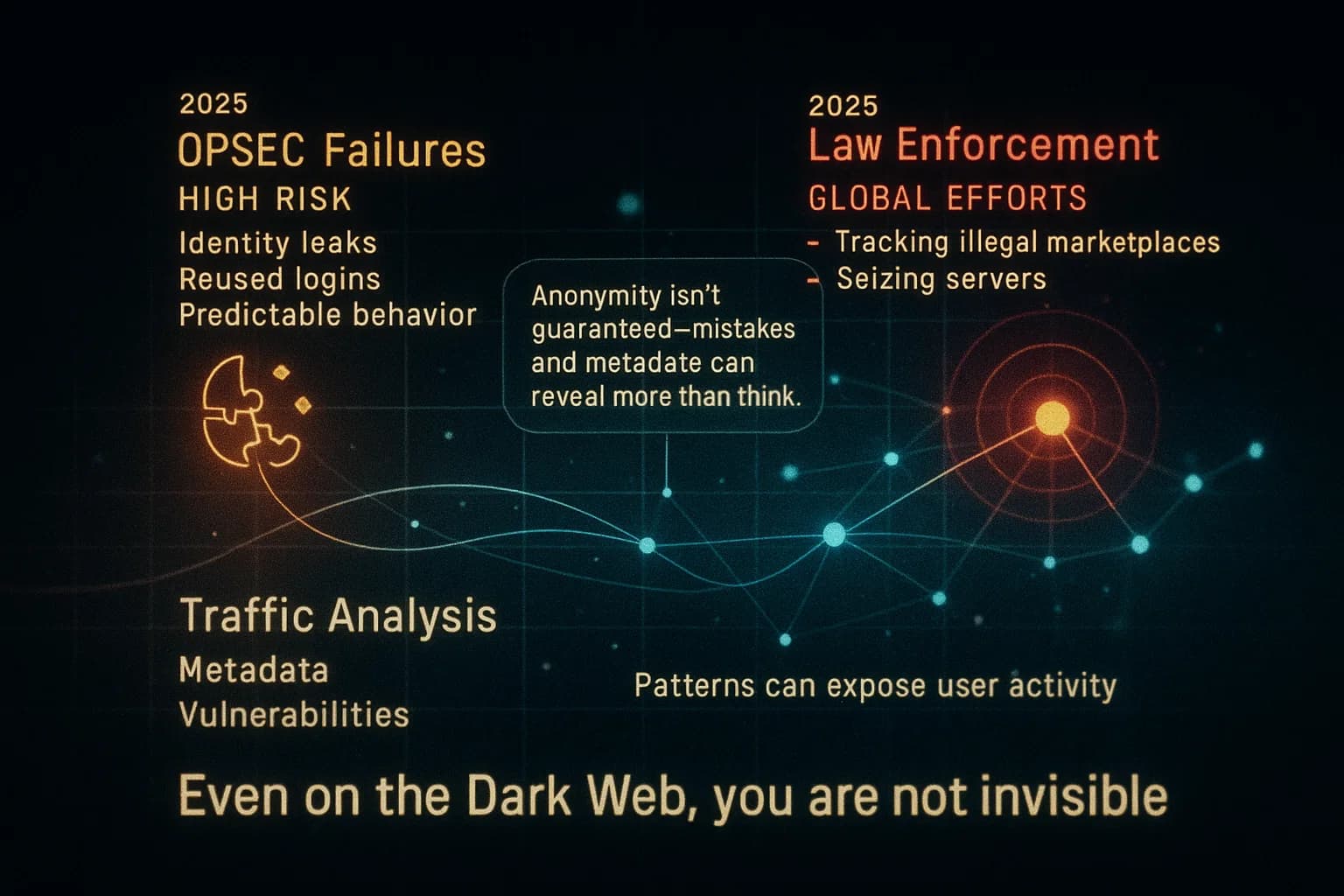
Myth: Nothing you do on the dark web can be traced back to you.
Reality: Total anonymity is a myth. Tor offers strong privacy by design routing traffic through encrypted relays, but reality is messier. Determined law enforcement and cyber criminals have found ways to deanonymize users. For example, Tor exit nodes or malicious relay nodes can be compromised to track activity. Some .onion sites include tracking scripts, and shady operators may collect user data.
Authorities themselves admit they can and do trace dark web activity. The FBI, DEA, and Europol have run honeypots fake marketplaces to catch criminals, and even legitimate users can slip up. As Avast’s research points out: Web tracking is still possible on the dark web. They note agencies conduct online surveillance, set up honeypots, and operate anonymous dark web info tip lines to gather leads. In fact, in a 2014 operation the FBI seized over 400 .onion sites Silk Road 2.0 and others. This shows the dark web isn’t an untraceable Wild West if you’re sloppy, you can be found.
The dark web is harder to track than the regular web, but it’s not magic. Always assume you can be identified if someone tries hard enough. Use common sense safety VPNs, no real personal info, updated software and don’t believe you have impunity.
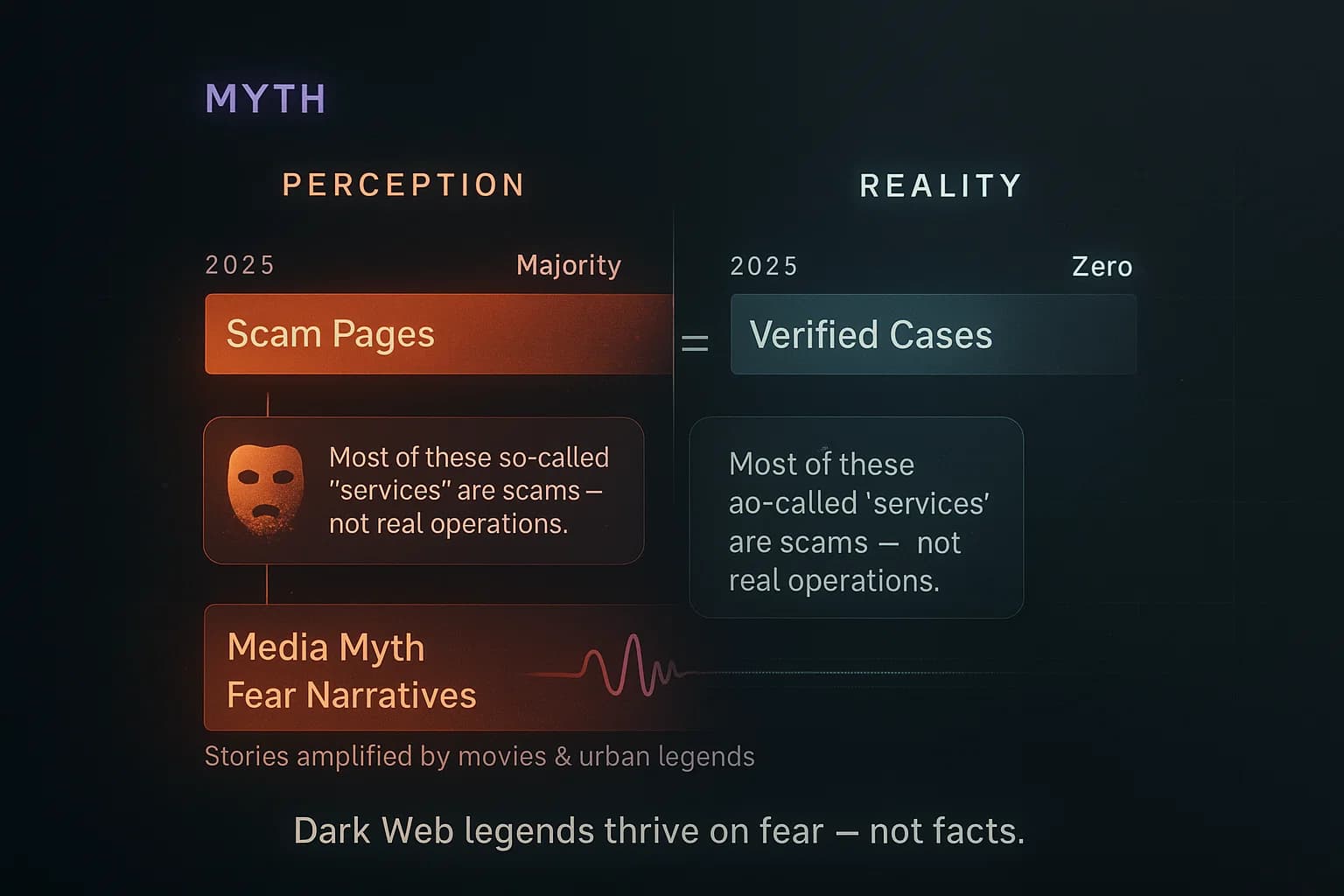
Myth: If you browse deep enough, you’ll find murder for hire, torture videos, and other horrific services.
Reality: These are mostly urban legends. While Hollywood loves a tale of a dark web hitman and scammers will advertise hitman services for Bitcoin, almost no legitimate criminal strike for hire ring operates openly on Tor. Every time law enforcement has investigated, the hitman site turned out to be a scam or undercover operation. As cybersecurity firm Avast bluntly notes: While you can hire hitmen on the dark web, it’s almost always a scam.. Buyers either get swindled, arrested, or never get what they paid for.
Likewise, stories of snuff films or real gore on demand are mostly myth and rumor. Scammers and trolls spread these stories to scare people. In reality, you’re far more likely to see fake marketplaces or dodgy fraud offers than an actual hitman website that delivers. Even major crackdowns Silk Road, AlphaBay, etc. were about drugs, guns, or data not assassination contracts.
Don’t waste a thought on these horror legends. Focus on real risks like phishing, malware or scams. As one Intel analyst put it, the dark web is not as dangerous as it sounds.
| Myth | Reality |
|---|---|
| Dark web = Deep web. | The dark web is just a small subset of the deep web. The deep web email, banking, etc. is huge 90- 95% of the net, while the dark web is <1% and requires Tor/.onion. |
| Dark web makes up most of the Internet. | No way. Only about 55,000 .onion sites exist 8,400 active, that's far less than 0.005% of the web. |
| All dark web content is illegal. | Many .onion sites are legitimate news sites, forums, file archives. Whistleblowers and activists rely on Tor. Law enforcement also monitors criminals there. |
| Using Tor/dark web is illegal. | Using the Tor browser and visiting hidden sites is legal in most countries. Committing crimes via Tor is illegal, not the tool itself. |
| Dark web users can’t be traced. | Tor is private, but not foolproof. Investigators can track activity via compromised nodes or tip offs. In 2014, FBI seized 400+ onion sites in one swoop. |
| Real hitmen/snuff sites exist. | Nearly all hire a hitman ads are scams or stings. Genuine murder services are essentially non-existent on Tor. |
These myths have been debunked by experts and authorities. Fact checking from ISO, law enforcement, and cybersecurity firms all agree: the dark web is much less monstrous than pop culture suggests. It’s a tool and a place, not a mystical evil lair.
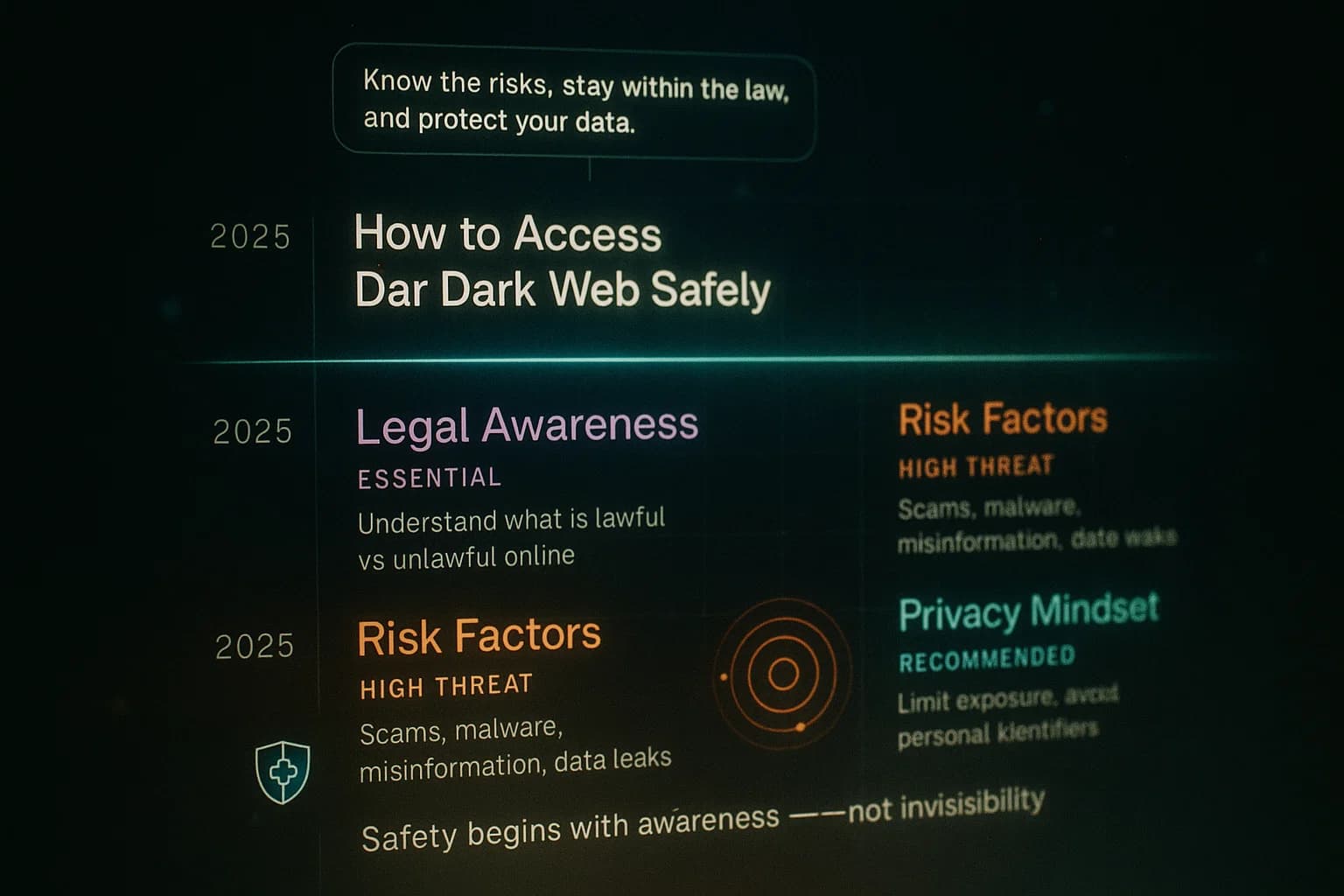
If you decide to explore the dark web for research or privacy reasons, do it safely. Follow these steps:
Following these steps won’t protect you from everything, but it greatly reduces risk. And remember: only legal activities are truly safe. If you see illegal goods, leave it alone.
As we’ve seen, most dark web legends are big exaggerations. The dark web is real, but it’s a small, specialized network used for many purposes not a boundless crime lair. Understanding the facts helps us stay curious but cautious. So don’t panic if you hear terms like onion network or Tor just know it’s a tool with pros and cons.
Ready to Strengthen Your Defenses? The threats of 2025 demand more than awareness; they require readiness. If you're looking to validate your security posture, identify hidden risks, or build a resilient defense strategy, DeepStrike is here to help. Our team of practitioners provides clear, actionable guidance to protect your business.
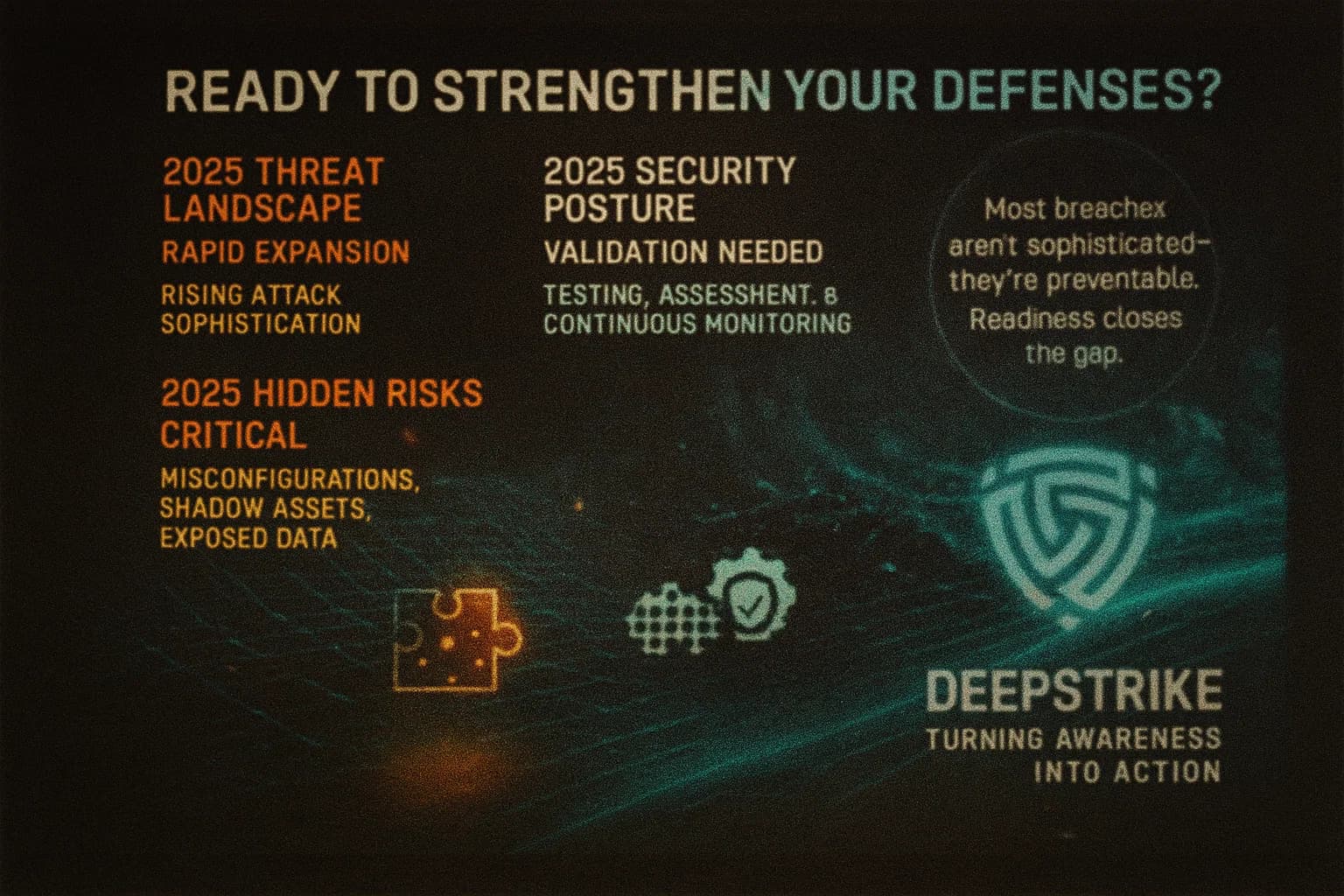
Explore our Penetration Testing Services to see how we can uncover vulnerabilities before attackers do. Drop us a line, we’re always ready to dive in.
About the Author
Mohammed Khalil is a Cybersecurity Architect at DeepStrike, specializing in advanced penetration testing and offensive security operations. With certifications including CISSP, OSCP, and OSWE, he has led numerous red team engagements for Fortune 500 companies, focusing on cloud security, application vulnerabilities, and adversary emulation. His work involves dissecting complex attack chains and developing resilient defense strategies for clients in the finance, healthcare, and technology sectors.
The Deep Web is any site not indexed by search engines like private email or bank accounts. The Dark Web is a small, hidden portion of that, accessible only via special tools like Tor.
No, simply using Tor to browse the dark web is legal in most countries. It’s only illegal if you do something unlawful there buy contraband, hack, etc..
No. Many .onion sites are entirely legal news outlets, forums, security tools. In fact, some services use Tor exactly to protect free speech or privacy. Only specific sites like drug markets are illegal.
They can, if they try hard enough. Tor makes tracking difficult but not impossible. Authorities run operations to trace users for instance, by running fake marketplaces. Always assume your actions could be monitored.
Use Tor downloaded from the official site, consider a VPN, keep software updated, and never share personal info. Only visit trusted .onion links. See the steps above for a simple safety checklist.
Almost certainly not. Reports of murder for hire sites or illegal videos on Tor are usually scams or police traps. Do not trust those stories they are nearly always false.

Stay secure with DeepStrike penetration testing services. Reach out for a quote or customized technical proposal today
Contact Us